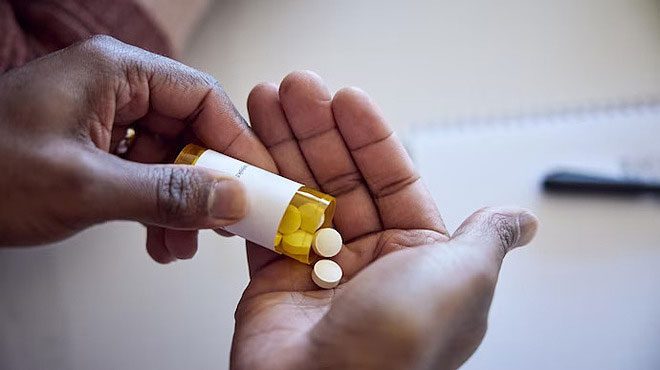India Set to Launch Cancer Drug Priced at Just 1 USD; Human Trials on the Horizon.
Earlier this week, researchers at the Tata Memorial Centre in Mumbai announced remarkable results from their 10-year study focused on developing a drug to prevent cancer relapse. This drug also aims to reduce side effects associated with cancer treatment.
Specifically, the new medication contains the compound R+Cu, which includes antioxidants such as resveratrol and copper, known for their potential to combat cancer.
According to the research, the drug can cut side effects from cancer treatment by half and reduce the risk of cancer recurrence by approximately 30%. It has shown efficacy against various types of cancer, including pancreatic, lung, and oral cancers.

Illustration of tablets in a medicine box. (Photo: India Today).
This is anticipated to be the most affordable and effective cancer treatment available to date. When launched, the drug is expected to be priced at 100 rupees, approximately 1.2 USD.
The drug is currently being tested in both mice and humans for its ability to reduce side effects. However, the trials aimed at preventing cancer relapse have only been conducted on mice, while human trials are still in the preliminary stages and may take at least 5-6 years to complete.
NDTV quoted Mr. Rajendra Badwe, the director of Tata Memorial, stating that the drug is expected to receive approval from regulatory authorities in June or July 2024 for its efficacy in reducing side effects from cancer treatment, with sales commencing shortly thereafter.
In the study, Indian researchers implanted human cancer cells into mice, leading to tumor formation.
Following treatment with radiation, chemotherapy, and surgery, it was observed that dying cancer cells release tiny particles known as chromatin particles. These particles travel through the bloodstream and have the potential to transform other healthy cells into cancerous cells.
To counteract this process, researchers administered antioxidant drugs containing resveratrol and copper (R+Cu) to the mice.
“The R+Cu tablets generate oxygen radicals that destroy chromatin particles,” Mr. Badwe explained. It also prevents cancer cells in one organ from metastasizing to other organs in the body.
Regarding the mechanism of action, these tablets, once ingested, release oxygen radicals in the stomach. These radicals are quickly absorbed into the bloodstream, inhibiting the spread of cancer cells and alleviating the impact of chemotherapy.
“Now we need to conduct human trials to find the best ways to improve outcomes for our patients, and if possible, for the general population in India,” Mr. Badwe stated.
Tata Memorial is one of the largest and oldest cancer research facilities in the world, funded and operated by the Department of Atomic Energy of India.
The Indian study was published just weeks after Russian President Vladimir Putin announced that the country is close to developing a cancer vaccine. “We have reached a significant milestone in the development of a cancer vaccine and next-generation immunomodulatory drugs,” the Russian leader stated.



















































